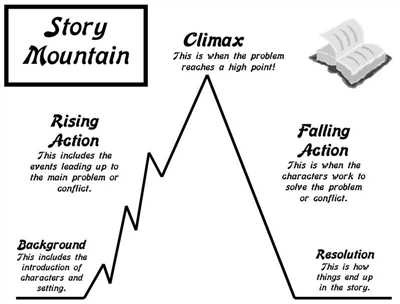
Writing a lore can be a challenging task, but with the right approach and a custom mindset, anyone can create a captivating and immersive story. Whether you’re writing for a tabletop game, a video game, or even a novel, the key is to create a world that feels alive and believable.
When creating a lore, one of the most important things to consider is the characters. They are the heart of your story, and their motivations, backgrounds, and interactions will shape the events that unfold. Each character should have their own unique personality, and you should always keep their individual stories in mind when writing any chapter or event.
Another key aspect to consider is the world itself. Is it a deep and complex fantasy world filled with magic and mythical creatures? Or is it a dystopian future where humanity struggles to survive? Whatever the idea may be, it’s important to keep the spirit of the world consistent throughout the lore. The lore should be well-done and thought out in order to keep the reader or player engaged.
As a writer, one of the most important things to remember is to always leave room for creativity. While you may have a general idea of how the lore will unfold, it’s important to allow yourself to be flexible and open to new ideas. Sometimes, the most exciting and unexpected events come from unexpected places, so don’t be afraid to take risks and explore new paths in your writing.
It’s also important to find sources of inspiration for your writing. This could be anything from books and movies to real-life events or even spirituality. These sources can help to fuel your imagination and add depth to your lore. Always keep a notebook or a list of ideas handy, so you can jot down any flashes of inspiration that come to you throughout the day.
Creating a lore can be a great hobby and a fulfilling creative outlet. It’s a task that will take time and effort, but with patience and dedication, you can create a world that others can get lost in. So, go ahead and start writing. What would be your next exciting lore?
How to write lore for a custom Chapter
When it comes to creating a custom Chapter for your tabletop gaming hobby, writing lore for the Chapter itself can be one of the most exciting and challenging tasks. Lore is what gives depth and background to your Chapter, making it more than just a collection of miniatures. In this article, we will focus on how to write lore for a custom Chapter, providing you with some ideas and guidance to help you get started.
First and foremost, it is important to find inspiration for your Chapter’s lore. There are many sources you can draw from, such as other Chapters, real-world events or stories, or even your own imagination. Take the time to do some research and make a list of ideas that resonate with you.
While creating your Chapter’s lore, always keep in mind the spirit of Warhammer 40,000. The world of Warhammer 40,000 is a dark and grim place, filled with conflict and despair. Your lore should reflect this, with stories of heroic sacrifices, desperate battles, and the struggle against overwhelming odds.
In terms of the lore itself, there are a few key elements to consider. Firstly, you’ll want to have a clear idea of the Chapter’s origins and their place within the wider universe. What are their beliefs, traditions, and values? How do they interact with other Chapters and factions? These are all important questions to answer when crafting your Chapter’s lore.
Another important aspect to consider is the characters within your Chapter. Who are their heroes and leaders? What are their motivations and goals? Having well-defined and interesting characters can add depth and richness to your lore.
It’s also worth noting that lore doesn’t have to be limited to just text. You can also include images, artwork, or even short stories to help bring your lore to life. If you’re not confident in your English writing skills, don’t be afraid to reach out for help. There are many talented writers in the Warhammer community who would be more than willing to assist you.
When it comes to writing lore, one of the most important things to remember is to have fun with it. Creating your own custom Chapter is a chance to let your imagination run wild and tell the stories that you’ve always wanted to tell. Whether it’s the tragic tale of a lost Chapter or the epic saga of a Chapter’s fight against an ancient evil, the possibilities are endless.
So, if you’re looking to create a custom Chapter for Warhammer 40,000, take the time to write some lore for your Chapter. It’ll not only add depth and richness to your gaming experience, but it’ll also earn you the respect and admiration of your fellow hobbyists. And who knows, maybe your lore will be the inspiration for the next great Chapter in the Warhammer 40,000 universe.
What is your English level? Take our short English test to find out
Are you unsure about your English proficiency? Take our quick English test to determine your level. This test will help you assess your understanding of the language and identify areas for improvement.
Whether you are a native English speaker looking to brush up on your skills or a non-native speaker aiming to enhance your language abilities, this test is a great way to evaluate your current level of English proficiency.
In this test, you will find a series of multiple-choice questions designed to assess your grammar, vocabulary, reading comprehension, and listening skills. Answer each question to the best of your ability, and don’t worry if you’re not sure about the correct answer. This test is meant to give you an idea of your proficiency level and highlight areas that may need further attention.
Once you’ve completed the test, we’ll provide you with your English level, ranging from beginner to advanced. This information will give you a better understanding of your current language skills and guide you to appropriate learning resources.
Remember, learning English is an ongoing journey. No matter what level you start at, there is always room for growth. So, don’t be discouraged by the results. Instead, use them as a starting point to work towards improving your English proficiency.
Take the English test now and embark on your language learning journey!
Wrap Up
In this chapter, we have explored the world of lore creation. Writing lore can be an exciting and deep task, one that requires a great deal of imagination and hard work. Whether you are creating lore for a tabletop game, a miniatures game, or even an online video game, the process of making a well-done lore is always the same. It involves creating a rich world with carefully crafted characters, events, and a sense of spirituality.
When writing lore, it is always important to keep the focus on your world and its story. This means that while it is tempting to come up with ideas for all of the different aspects of your world, such as the history, geography, and culture, it is important to only write what is necessary for your lore. Writers can easily get lost in the details and lose track of the main purpose of their lore.
One of the most important things when creating a lore is to find inspiration. Ideas can come from a variety of sources, such as books, movies, and real-world events. Additionally, interacting with other lore writers and gamers can help you generate new and unique ideas. In fact, many lore writers participate in online workshops and forums to test and earn feedback on their lore.
Another important aspect of lore creation is to keep the lore consistent. This means that if you introduce a certain concept or rule in one chapter, it should be followed throughout the rest of the lore. It is also important to keep the lore engaging and to always leave your readers wanting more. This can be done by introducing cliffhangers, mysteries, and unresolved conflicts throughout the lore.
Although lore writing is a creative endeavor, it is important to remember that it is also a form of writing. This means that your lore should be well-written and free of grammatical errors. Additionally, it is important to write your lore in a way that is accessible to your target audience. If your target audience primarily speaks English, then writing your lore in English would be a good choice.
In conclusion, creating lore is an exciting and fulfilling hobby. It allows you to create a whole new world and bring it to life through words. Whether you are writing lore for a tabletop game, a miniatures game, or even an online video game, the steps for creating a well-done lore are the same. By following the steps outlined in this chapter and keeping the tips in mind, you can create a lore that will captivate your audience and keep them coming back for more.
| Key Points |
|---|
| Focus on your world and its story |
| Find inspiration from various sources |
| Keep the lore consistent and engaging |
| Write well and consider your target audience |
Man vs AI 🔗

When it comes to creating lore for a tabletop game or any other work of fiction, one of the most exciting things you can do is pit man against AI. This idea of man vs AI creates an interesting dynamic, as the writer can explore themes of technology, artificial intelligence, and the impact they have on the world.
With the rapid advancement of AI technology in our world today, it’s only a matter of time before AI plays a prominent role in gaming. Although some may argue that this takes away from the creative aspect of storytelling, there are plenty of ways you can use AI to enhance your lore and make it more engaging for your players.
When writing lore, it’s important to keep the focus on the story and how the AI events shape and develop the world. While the AI itself can be a source of inspiration, it shouldn’t be the only driving force in the lore. The lore should still focus on the characters, their struggles, and the world they inhabit.
One way to incorporate AI into your lore is by using it as a tool for the writer. AI can help generate ideas and even write short chapters or snippets of lore. However, it’s important to not rely too much on AI and to keep the creative spirit alive. AI can assist, but it shouldn’t replace the writer’s own imagination and storytelling abilities.
Incorporating man vs AI in your lore can also be a fun way to engage your players. You can create scenarios where the characters have to battle or outsmart AI opponents, earning rewards and progressing through the story. This can add an extra level of excitement and challenge to your game.
Of course, creating lore isn’t always an easy task. Writer’s block, lack of inspiration, or simply not knowing where to start can leave you feeling lost and frustrated. In such cases, it can be helpful to take a step back and seek inspiration from other sources.
One great way to find inspiration is by looking at other games or tabletop systems. Seeing how they have incorporated AI into their lore can give you ideas for your own. Additionally, reading books or watching movies that explore man vs AI themes can also provide inspiration and help you come up with new ideas.
When it comes to creating lore, there are no hard and fast rules. You have the freedom to explore and experiment with different ideas and concepts. Whether you choose to incorporate AI or focus more on spirituality and deep themes, the choice is yours.
So, embrace the challenge of man vs AI in your lore and let your creativity run wild. The world is yours to create, and with the help of AI, you can take your storytelling to the next level.
Sources
When it comes to creating a lore for your game or tabletop world, it’s always important to find sources of inspiration. As a writer, your ideas can come from something as simple as a test you took in school or a conversation with a friend. Next time you’re in need of some new and exciting ideas for your lore, keep these sources in mind:
1. Books: Look above and beyond the tabletop gaming world. There are great English books out there that can help you wrap your head around creating a deep and well-done lore. Take the time to read through different genres to find what works best for your world.
2. Tabletop Games: Although your lore may not focus solely on gaming events, tabletop games can be a great source of inspiration. Take a look at the miniatures, custom events, and the world itself. Their lore can help you come up with new ideas or take your lore to the next level.
3. Spirituality: While some may find spirituality to be a taboo subject, it can offer a lot of inspiration for lore creation. Many spiritual beliefs are deeply rooted in stories and myths, making them a great resource for finding ideas to incorporate into your lore.
4. History: Take a deep dive into the past and explore historical events and figures. There is always something to learn from history, and it can provide a wealth of inspiration for creating your own lore. Lost civilizations, wars, and great leaders are just some examples of what you can draw from.
5. AI Help: If you’re struggling to come up with ideas, don’t be afraid to enlist the help of AI. There are AI programs and tools available that can generate ideas based on keywords or prompts that you provide. While it shouldn’t be your only source of inspiration, AI can help you get unstuck and spark new ideas.
Remember, creating a lore is a task for a writer, and it can be an exciting and rewarding hobby. It isn’t something you have to do alone, and these sources can help you along the way. Keep a list of your favorite sources and refer to them when you need a boost of inspiration for your next chapter.










